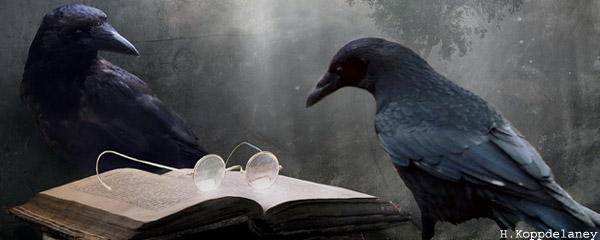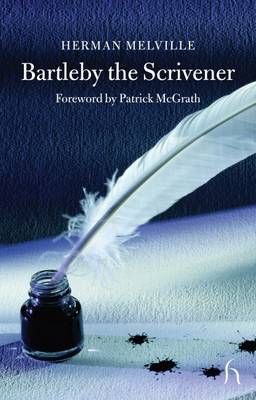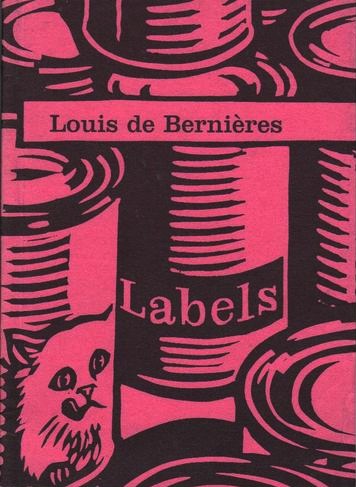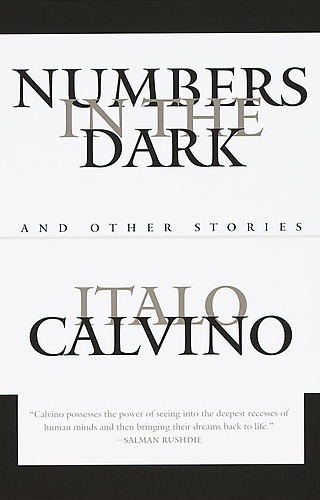
photo by H. Koppdelaney
by Charles Davis
When it comes to reading short stories, I’d prefer not to. As a premise for a piece submitted to a site promoting the short story, this is not a hugely promising start. But bear with me.
I’ve tried, believe me. I’ve read short stories by just about every writer working in the form who has ever had a ‘greatest’ or ‘best’ appended to their name – from Poe to Turgenev, Fitzgerald to Faulkner, Saki to Rulfo, Flannery O’ Connor to J.D. Salinger, Chekhov to Carver, Maupassant to Mansfield, Jorge Luis Borges to Annie Proulx… Been there, done that. I’ve even waded through the collected works of both V. S. Pritchett and William Trevor, having purchased these massive volumes in a misguided spirit of self-improvement and being too mean not to get my money’s worth thereafter. In the last year alone, I have read The Progress of Love by Alice Munro, Cross Channel by Julian Barnes, The Brief and Frightening Reign of Phil by George Saunders, and Animal Crackers by Hannah Tinti… all of which might suggest a mild propensity for masochism in someone who professes to dislike reading short stories.
 To be fair, both to the stories’ authors and to myself, there were moments of pleasure in all these reading experiences (with the possible exception of Edgar Allen Poe, who still gives me nightmares for all the wrong reasons). These pleasures were inspired by the cadences of the prose, striking images, one-liners that made me smile, and the occasional clutch at the heart. Moreover, there are scenes, settings and situations that have insinuated themselves into my mind and refuse to go away, wafting about the nether regions of memory, so completely dislocated from context that, when an event or phrase reminds me of them, I am left wondering where on earth I picked up that particular brainworm. This fixation suggests that it is not a lack of literary quality that puts me off short stories. All the things that obsessive writers and readers love most, all the things that are most baffling to people not bitten by the bug for words, are there in abundance. But there is a problem of scale.
To be fair, both to the stories’ authors and to myself, there were moments of pleasure in all these reading experiences (with the possible exception of Edgar Allen Poe, who still gives me nightmares for all the wrong reasons). These pleasures were inspired by the cadences of the prose, striking images, one-liners that made me smile, and the occasional clutch at the heart. Moreover, there are scenes, settings and situations that have insinuated themselves into my mind and refuse to go away, wafting about the nether regions of memory, so completely dislocated from context that, when an event or phrase reminds me of them, I am left wondering where on earth I picked up that particular brainworm. This fixation suggests that it is not a lack of literary quality that puts me off short stories. All the things that obsessive writers and readers love most, all the things that are most baffling to people not bitten by the bug for words, are there in abundance. But there is a problem of scale.
In part, this stems from a lingering literary machismo. I’m not talking some Hemingwayesque hard-man fantasy. I never did understand Hemingway. When I started writing though, there was one element of literary machismo to which I succumbed. Moby Dick was my model, and the principal quality I identified in it was that it was big and wildly ambitious. Then I read Tolstoy and Dostoyevsky and brevity became a lost cause as far as I was concerned. I wanted more words for my money, good words, well used words, but lots of them, please, describing lots of stuff happening. There are writers like Jim Harrison and Alice Munro who can contrive a panoramic scale in a few pages, conjuring complete lives in the length of a modest magazine article, producing what are effectively condensed novels. But too often for my tastes, short stories encapsulate a moment and fail to link it to all the other moments that surround it, which might turn it into a decent novel.
Implicit in this is a second objection. Concision entails evocation rather than exposition. As a result, I frequently end a short story dimly aware that something has taken place, something highly meaningful and fraught with consequences that are going to shape the characters’ lives irrevocably, only I’m none too sure what it is. This haziness might be ascribed to rubbish reading skills, but I don’t think it’s simply boorishness on my part. I can spot significance in the murkiest of waters and read meaning into some fabulously obscure works. Sometimes – I’m not sure how – I even understand Umberto Eco. However, I need time and space in which to do it. Crystallising a life in a single, superficially trivial incident tends to illuminate without clarifying, as if lucidity relies upon the long view. And “Hang on, what happened there?” is not a gratifying sentiment with which to end a story, no matter how brief.
E ven in works apparently crowded with incident, like Hemingway’s ‘The Short Happy Life of Francis Macomber’, I can recall a sense of so-whatism. I mean, here’s a story about sex and death involving several very large, very vexed, and very heavily toothed animals lumbering about against the backdrop of an exotic landscape in order to get themselves gunned down by some bloke with a big shirt, a dodgy wife, and a weird way of proving his virility. Yet it doesn’t take you anywhere.
ven in works apparently crowded with incident, like Hemingway’s ‘The Short Happy Life of Francis Macomber’, I can recall a sense of so-whatism. I mean, here’s a story about sex and death involving several very large, very vexed, and very heavily toothed animals lumbering about against the backdrop of an exotic landscape in order to get themselves gunned down by some bloke with a big shirt, a dodgy wife, and a weird way of proving his virility. Yet it doesn’t take you anywhere.
Reservations about the form notwithstanding, there are three short stories that will remain with me for the rest of my life. In each, the author begins with a simple premise, then pushes it so far towards its logical conclusion that it becomes gloriously surreal. That’s what I like best in short stories, their capacity for absurdity. Despite all its swaggering braggadocio, the novel is a delicate creature, liable to lose all credibility if things get too ludicrous. By contrast, the short story can carry off playfulness with an almost infantile insouciance. Perhaps this is where scale helps. When the big and beefy get playful, they just look daft. Gravity weighs them down and clumsiness subverts their mischief making. You need to be more nimble, lighter on your feet to get away with these things.
The first of the three stories is Herman Melville’s ‘Bartleby, the Scrivener’, in which a morose clerk provokes all manner of havoc for his employer when he refuses to do any further work, responding to instructions and entreaties with the diffident phrase that he ‘would prefer not to’ – a preference that gradually expands from his professional tasks until it is eventually applied to the very act of staying alive. Like most good writing, ‘Bartleby, the Scrivener’ is sufficiently supple to support multiple interpretations, ranging from a philosophical enquiry into the nature of free will, through an examination of existential despair, to a personal riposte from Melville to critics who wanted him to be a different sort of writer altogether. What I love about it, though, is Bartleby’s dogged intransigence and the social comedy of the refrain. It is absurd, both in literal and literary terms.
The second story is Louis de Bernières’ ‘Labels’. It details the fall and rise of a man with an ungovernable passion for the labels on tins of cat food. The passion becomes an obsession that effectively dismantles his life from the wallet out until his avowed intention to become ‘an eminent authority’ on cat food labels leaves him isolated, penniless, and surrounded by a collection of unopened tins of cat food, which is as comprehensive as the collection of labels. What is a man to do in such a predicament? Why, make pâté, of course! And a small fortune to boot. As the narrator himself says, the whole thing is ‘intrinsically absurd’, but the logic of absurdity is ineluctable and delicious.
 The third story is Italo Calvino’s ‘The Black Sheep’, a perfect little parable examining the catastrophic consequences when one honest man appears in a society of villains. Optimists might hope a positive and improving example would be set, but on the contrary, once the accepted rules are breached, things fall apart. After all, these people are used to going out of a night and robbing one another’s houses. But with one honest man sat at home, at least one would-be burglar is going to be frustrated and return home empty-handed. Informed that he has no right to prevent people earning a living, the honest man takes to absenting himself at night. But he can’t bring himself to rob other people, as a consequence of which, wealth is not evenly redistributed, and the people he didn’t rob gradually become richer, while those who break into his increasingly denuded house become poorer. Before long, everything is out of kilter, and a society that had previously lived in harmony is reduced to, well, something not so very different from our own society. ‘The Black Sheep’ is available free online. Five minutes of your time and you’ll have a smile to call upon for years to come.
The third story is Italo Calvino’s ‘The Black Sheep’, a perfect little parable examining the catastrophic consequences when one honest man appears in a society of villains. Optimists might hope a positive and improving example would be set, but on the contrary, once the accepted rules are breached, things fall apart. After all, these people are used to going out of a night and robbing one another’s houses. But with one honest man sat at home, at least one would-be burglar is going to be frustrated and return home empty-handed. Informed that he has no right to prevent people earning a living, the honest man takes to absenting himself at night. But he can’t bring himself to rob other people, as a consequence of which, wealth is not evenly redistributed, and the people he didn’t rob gradually become richer, while those who break into his increasingly denuded house become poorer. Before long, everything is out of kilter, and a society that had previously lived in harmony is reduced to, well, something not so very different from our own society. ‘The Black Sheep’ is available free online. Five minutes of your time and you’ll have a smile to call upon for years to come.
There was a literary vogue in the seventeenth century for ‘ludibriums’, capricious or trivial games, like the pamphlets that triggered the Rosicrucian furore. Most of these ludibriums were woefully short on laughs. Nonetheless, ‘ludibrium’ is still a good word, and for me, the best short stories are ludibriums or capricious games, games that may or may not tell us something meaningful about life, but which gleefully embrace the absurdity of the human condition.
Mind you, you don’t want to listen to me. When it comes to reading short stories, I’d prefer not to.

